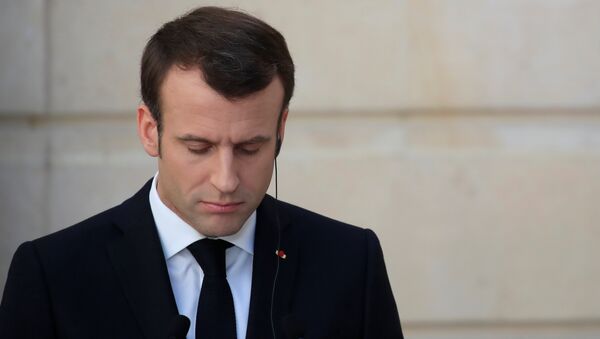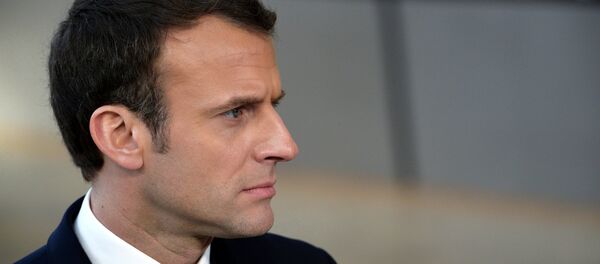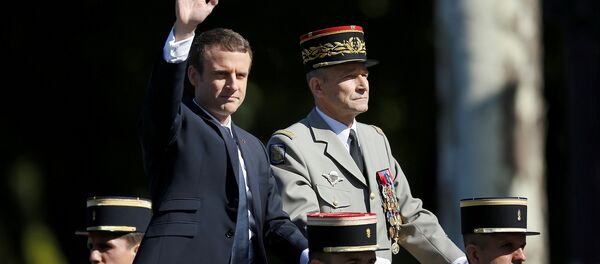Sputnik discussed Macron's call for a "European Renaissance" with Professor Simon Tormey from the Department of Government and IR, School of Social and Political Sciences, Faculty of Arts and Social Sciences at the University of Sydney.
Sputnik: In your view, what does President Macron want to achieve by making this statement now?
Simon Tormey: Macron is very much at home with big bold theorising — it's what he does best, and Europe doesn’t have another leader who wants to articulate a collective vision. So there is a vacuum there and Macron is keen to fill it. Of course, he’s also keen to relaunch himself in the eyes of the French citizens, who elected him, after months of turmoil and opposition to his presidency. So its a good move on his part at every level.
READ MORE: Belgian Prime Minister Supports Macron's Call for 'European Renaissance'
Sputnik: What did he mean by calling for a European Renaissance?
Simon Tormey: Europe has lacked a sense of collective mission for a generation. Who was the last figure of consequence who tried to articulate something distinctively European? The Renaissance is a great reference point — rebirth — that’s what Emmanuel Macron is calling for and that arguably is what the continent needs.
Simon Tormey: Britain’s departure is complicated and linked to its own reluctance about joining a European political project. This has always been a feature of the UK’s relations with Europe and why it didn't join the euro, which was probably the last great integrating gesture. There’s just a residual suspicion about the EU that infects parts of the working class, the older generation that might have fought the war and a part of the ruling class that dreams of sovereignty.
READ MORE: France Will Block Article 50 Extension Unless UK Has 'Clear Objective' – Macron
Simon Tormey: I really don't think the EU is the problem here. They have been totally consistent through the negotiations, and for a reason. Everything they offer the UK will be requested by member states, and by other countries like Switzerland, Norway, and Ukraine. So they have patiently explained how the rules work and what they will accept and watched the Conservatives fall apart because the real issue is lack of consensus in the governing party as to what they really want. You can't have all the advances of membership of the EU and not be a member of the EU — this is clear to all observers, but very clear to Theresa May.
Sputnik: President Macron also proposed a ban on financing EU parties by foreign powers. What consequences can this have on EU relations with allies like the US?
Simon Tormey: I think this is a smart move. It's important that European politics remain the cause and consequence of decisions made by European citizens, not external powers. It's clear that Russia and the US, and quite possibly China, too, are seeking to negatively impact European politics, and this has to stop for the sake of the integrity of European democracy. This is a small step, but an important one.
The views and opinions expressed in this article are solely those of the speaker and do not necessarily reflect Sputnik's position.



